-
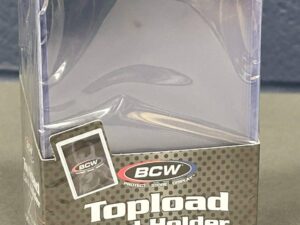 $2.991 × $2.99
$2.991 × $2.99
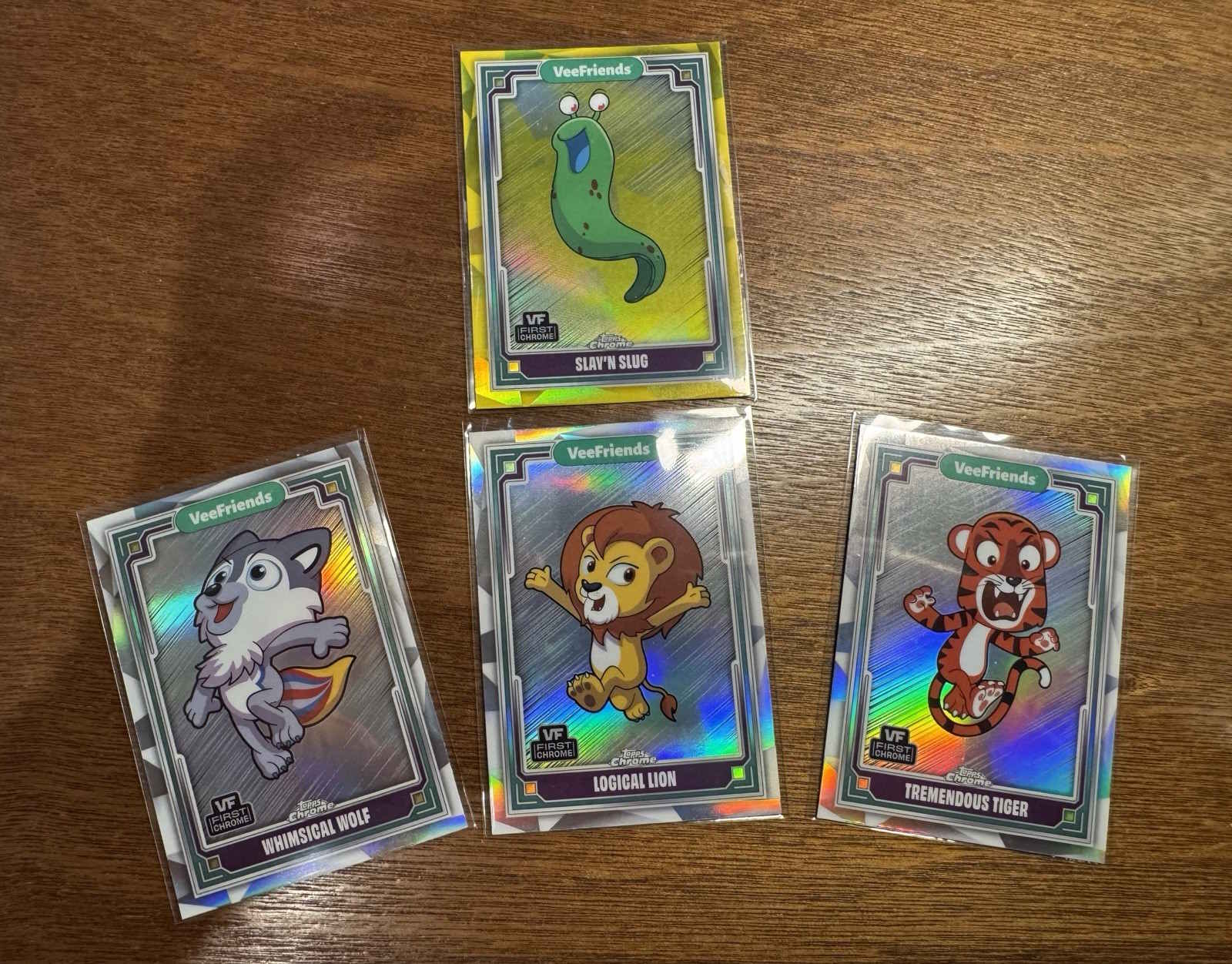

Arguing about grades is one of our favorite hobby pastimes. Is that a PSA 9 or a 10? Did BGS ding you for a soft corner, or was the grader just having a bad day?
The endless debates fill forums, group chats, and card shows — and for good reason. A half-point bump can mean the difference between college tuition and pocket change.
Given the importance of the grading industry, new grading companies are continually being founded. They almost always fail and typically lack distinguishing features.
However, the rise of AI is transforming every industry worldwide. It was only a matter of time before it upended grading. While Zeagley is not the first AI-powered company, it is already making a bigger splash than its rivals. Is it hype, or is this the next trend in sports card grading? Discover the answer as we explore whether Zeagley AI-powered grading is the next big thing.
According to their press release, “Zeagley Grading Services has launched a next-generation sports card grading platform powered entirely by artificial intelligence and machine learning.
Founded by former engineers from Amazon, Google, and Meta, Zeagley offers collectors fast, bias-free grading with full transparency – starting at just $9.99 per card.”
They admit that they are not yet 100% where they want to be. “Zeagley also developed a lightweight version of its grading engine capable of delivering results in under one second.
This portable system solves the challenge of transporting high-performance hardware across the country. Instead of scanning cards on-site, images are captured locally and securely processed through Zeagley’s backend APIs.
While not a complete substitute for HQ-level analysis, the portable version achieves the same grade over 95% of the time, making it ideal for live shows, grading previews, and conventions.”
Everyone is talking about them right now because they have promised to unleash their technology at Fanatics Fest, which takes place this month in New York.
The slabs are incredibly ugly. The QR code is a real issue for me and for anyone else who has seen this.

What are the key features of Zeagley?
Zeagley is now accepting submissions at Zeagley.com, with three service tiers:
If you think that the highly detailed report will give you graders notes with value. You don’t get that at all. Just some Beckett style subgrades.
But the company promises that the existing services are just the beginning. “What we’re doing now isn’t groundbreaking at all – it’s what’s coming next that is. We’re actively exploring ways to grade cards without them ever leaving the collector’s possession. We plan to launch that soon.”
Zeagley is the latest to throw its hat in the ring, arriving with a slick website, a parade of buzzwords, and the claim that they’re “a team of former engineers from Amazon, Meta, and Google based in Seattle—card collectors who grew increasingly frustrated with the flaws in the current grading system.”
The implication is clear: if anyone can bring Silicon Valley objectivity and speed to card grading, it’s these guys. Or so they would have you believe. They also have DraftKings as a major investor.
The Zeagley pitch leans hard into AI-powered, multi-angle imaging and transparency. They promise fast, bias-free grading, complete with digital reports that show exactly how your card’s grade was determined.
Gone, supposedly, are the days of “Monday morning” graders or mystery dings—at least if you believe the marketing.
But here’s where the seasoned collector gets a bit wary. For all the noise about Big Tech roots, Zeagley hasn’t made public any real details about who their founders are.
No names, no LinkedIn profiles, no stories about what they built at Amazon or Google—just a repeated assurance that they’re ex-engineers from the biggest names in tech. In today’s startup world, that’s not nothing—but it’s also not quite the transparency they’re selling.
If you’re looking for evidence beyond the press releases and website blurbs, you might be left wanting.
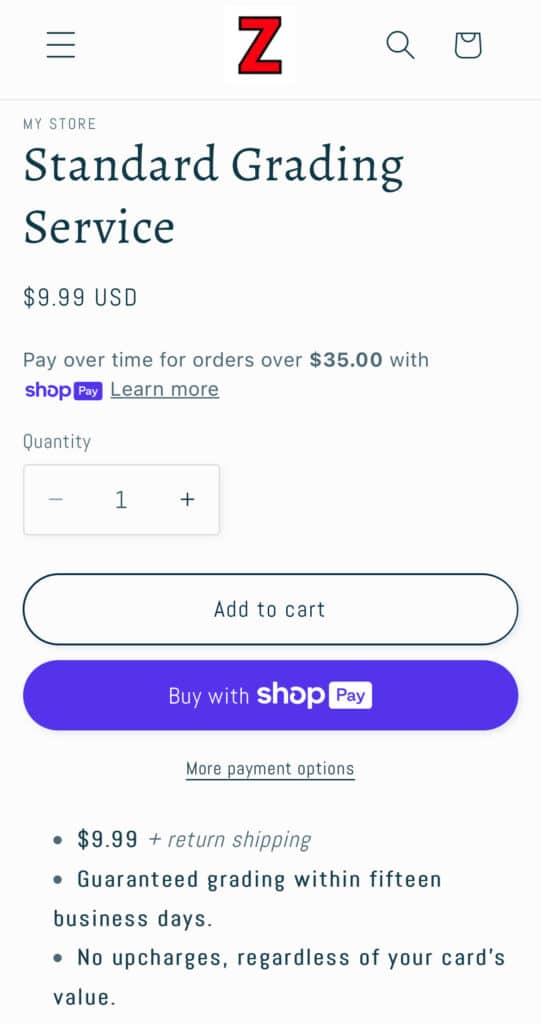
Let’s back up. Card grading, for all its drama, is still a pretty old-school affair. Despite the slabs and the pop reports, it’s a person with a loupe and a checklist making the calls. Sometimes they’re right, sometimes they’re… well, human.
Enter the AI grader, which promises to scan your card in high-res, run it through a million-point checklist, and spit out a grade that’s as close to objective as you can get.
The pitch is seductive. Faster turnaround times, theoretically fewer mistakes, maybe even lower prices — though nobody’s ever accused a grading company of being a charity.
Some of these new AI outfits claim their models can detect things the human eye can’t: micro-scratches, infinitesimal centering defects, the sort of detail that keeps obsessive collectors up at night.
That sounds great. However, it also sounds a lot like every other “game-changing” innovation that has been dangled in front of us since the advent of grading.
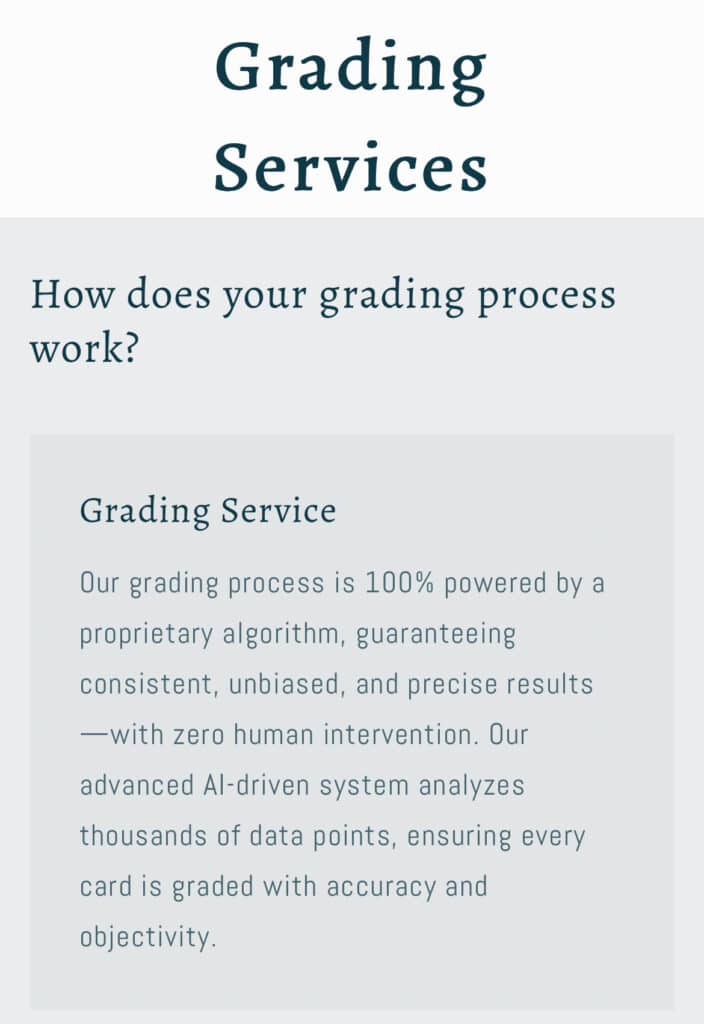
Of course, the promise of AI grading isn’t just vaporware — there are a handful of companies already in the game, each promising their spin on “objective” grading. Some you may have seen at the bigger shows, others are more of a rumor in a Facebook group near you.
The most buzzed-about name lately is Arena Club. Co-founded by Derek Jeter (yes, that Derek Jeter), they’ve built their pitch around digital slabs, AI-driven grading, and a slick online marketplace.
The experience feels more Silicon Valley than cardboard and bin. Their tech claims to catch the tiniest flaws, and the turnaround is quick. But, the jury’s still out on whether collectors trust the grades — or whether the market’s ready to price an “Arena Club 10” the same as a PSA.
Then there’s TAG (Transparent Authenticated Grading), which is fully committed to the AI angle. They’re not shy about their tech, touting multi-angle, high-res scans and a grading process they insist is fully transparent.
They even provide a detailed report card, detailing individual surface flaws and centering percentages. If you’ve ever wanted to see your card’s deepest flaws in HD, TAG’s got you covered.
Other outfits, such as Forensic Card Grading (FCG) and Hybrid Grading Approach (HGA), combine AI and human input. HGA, for example, utilizes computer vision to assist with centering and surface, but a person still makes the final call.
It’s kind of like having a robot assistant — helpful, but not quite ready to take over the world (or the hobby).
Of course, none of these companies have come close to toppling the Big Three (PSA, BGS, SGC), at least not yet. But they’re forcing the old guard to pay attention — and maybe, just maybe, to innovate a little themselves.
Collectors, of course, are skeptical. We’ve been promised the moon before. Remember the “tamper-proof” slabs? Or the companies that said they’d grade cards in real time at shows — and then ghosted three months later?
There are always growing pains associated with new developments, and AI grading is no exception.
On Blowout Forums, the crowd is split between folks who want more transparency and standardization, and those who trust “a drunk grader at any of the big 4 companies eating a Whopper and French Fries” over any newfangled AI.
Posters have horror stories about automated graders missing surface wrinkles, or the systems simply not being up to the challenge of vintage cardboard. The same astute observer noted, “Automated grading has no idea how to handle corners and surface.” One regular writes, “I was shocked by how they graded my ’70s and ’80s cards.”
Reddit, for its part, isn’t any more forgiving. When someone asks why AI grading isn’t more popular, the top comment cuts right through the hype: “Because AI doesn’t mean anything in this context, it’s another buzzword that people have latched onto like ‘Blockchain’ and ‘Crypto’.”
They point out that measuring centering doesn’t require “AI”—a ruler or app will suffice—and raise the issue of “continuous learning” in AI, which could cause population reports and grading to drift over time as the algorithm evolves.
There’s also the trust factor. “Where’s the integrity?” one user asks. “PSA is biased/crap at actual grading, but they’ve been doing it for a very long time. What about these other companies?”
The lack of transparency in how the AI models are built, tested, and updated leaves people wondering if they’re trading one black box for another.
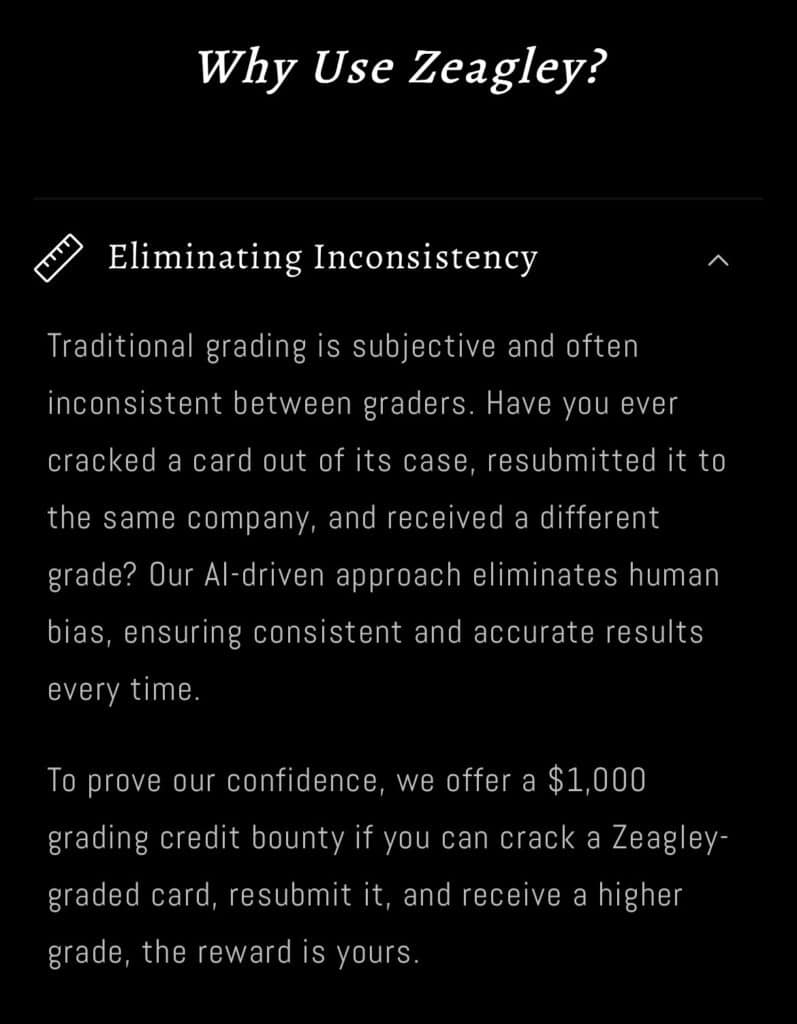
There’s also the question nobody seems to want to answer: Will the market trust an AI grade? If a PSA 10 Trout sells for five figures, what does an “AI 10” pull?
Will auction houses and buyers treat them the same, or will they end up in the “other” slab pile, right next to GMA and that one company that grades in neon green?
The short answer: it depends. Some folks will love the consistency (or the illusion of it), especially for modern cards where the condition is everything. Others will stick with the brands they know, warts and all. Card markets are slow to move, and trust isn’t built overnight — especially not when there’s a computer in the mix.
Then there is a big question over whether this can detect fakes. Would you trust a verified autograph from an AI program? I wouldn’t.
There are so many reasons to be skeptical about this new enterprise. Especially since none of these seem to succeed. Nonetheless, there are clear advantages.
An AI grading system can be more reliable and quicker than humans. They are already offering quicker turnaround and cheaper service than PSA. It would also be beneficial for the industry if someone could chip away at the PSA monopoly.
Anything that makes grading a little less mysterious — and a little less dependent on whether the grader’s coffee was too strong that morning — is worth watching.
The technology will improve, and so will the companies (some of them, anyway). Maybe in five years, we’ll all be chasing AI 10s and swapping horror stories about the “old days” of human error.
Or perhaps, like many other hobby trends, this will be just another addition to the pile.
Either way, I’ll be watching. And yes, probably still complaining about grades. After all, you can always blame whoever programmed the algorithm.
Is GameStop buying PSA? (the truth!)
I ripped an entire case of Phoenix Football (BIG win or MASSIVE loss?)
Make an extra 30% PROFIT on eBay with this sports card hack
What's your biggest trading card regret? This is a safe space. 🤣
I used ChatGPT to invest in sports cards (and make this thumbnail lol)
Easy hack for buying Tyrese Haliburton rookies at a DISCOUNT.
Did PSA Just Change Everything For Card Collectors?
Top Manchester United trading cards
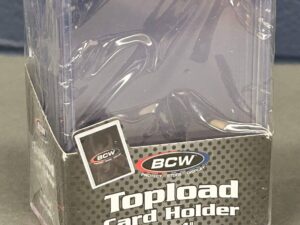
BCW Thick Card Toploaders 197 Pt. 10 per pack
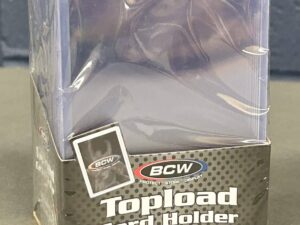
BCW Thick Card 59 Pt. Toploaders. 25 per pack

BCW 20 Pt. Toploaders. 25 per pack
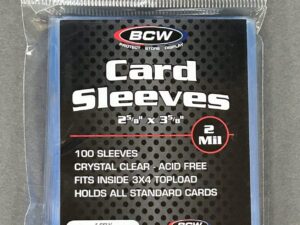
BCW Standard Card Sleeves. 100 per pack
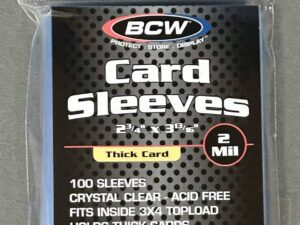
BCW Thick Card Sleeves. 100 per pack
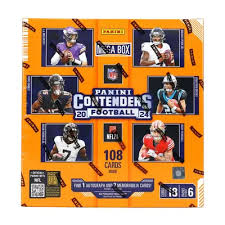
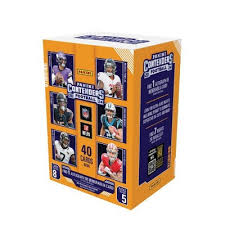
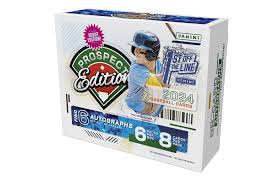
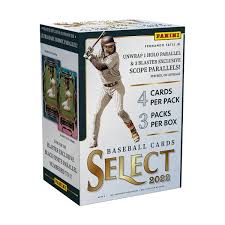
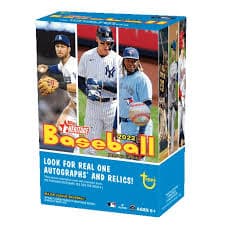
2022 Topps Heritage Baseball Blaster Box Configuration: 7 Packs per Box – 9 Cards per Box. Plus 1 extra pack.
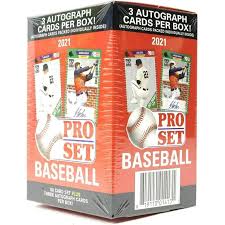
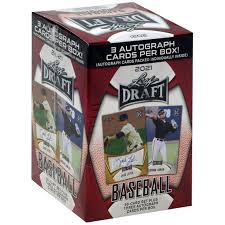
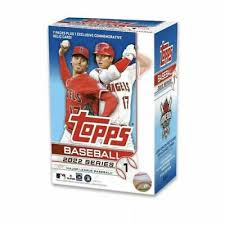
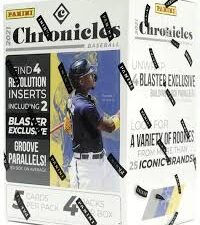

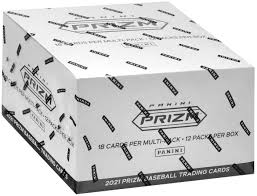
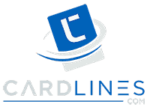
© Copyright 2025 - All rights reserved Cardlines.com / Media Techs LLC - Sports Card News, Reviews, Releases and BREAKS - #thehobby.
Important: When you click on links to various merchants on this site and make a purchase, this can result in this site earning a commission. Affiliate programs and affiliations include, but are not limited to, the eBay Partner Network.
I compared sports card prices from the big sellers to save YOU money
Cardlines June 16, 2025 5:00 pm